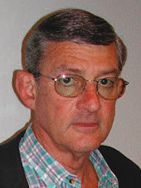CLS at 20
Dr. Robert M. Gresham | TLT Commentary 2013
After two decades, STLE’s signature service remains the standard of excellence for those who practice lubrication engineering.
KEY CONCEPTS
•
Created in 1993, the CLS designates a person as among the most qualified individuals working in lubrication engineering.
•
Once primarily a U.S. designation, CLS now is recognized and accepted around the world and given in several languages.
•
Recertification is required to ensure that the CLS holder stays current on industry knowledge and best practices.
CERTIFIED LUBRICATION SPECIALIST™—the highly successful STLE program better known simply as CLS™—has grown and flourished over the years. Today, 20 years after it was first launched in 1993, it remains the standard of excellence for those who practice the art of lubrication engineering.
Not everything has remained the same, of course. CLS has adapted to the times. For example, the demographics of certification holders have changed somewhat as more and more chemical suppliers and technical sales people perform the duties of the historic lubrication engineer for which the certification was originally intended. And the designation has expanded beyond its initial U.S foothold. Today 20 percent of CLS certification holders are from many other continents and countries, including Africa, Asia, Australia, Canada, the Caribbean, Central America, Europe, South America and the Middle East. The examination is now available in what we call “U.S. English,” plus “Internationalized English,” German and Spanish.
WHY CERTIFY?
The last few years have been rough ones for people in manufacturing industries throughout the world. Recessionary pressures highlight the necessity for maintaining high quality standards to remain competitive, especially since competition is global. Manufacturers in automotive, agricultural, military, engine (gasoline, diesel and gas turbine), aerospace (airframe and satellites) plus the parts suppliers to all these industries frequently turn to outside vendors such as chemical management suppliers, outside test laboratories and consultants to keep employee rolls and capital investment to a minimum. In addition, these OEMs need to mitigate risk and demand top quality performance by assuring that their own employees and the people they hire from the outside have the best, most qualified people on site—and back in the laboratory supporting their work.
How do users of lubricants, metalworking fluids, test labs and consultants know that their employees or suppliers are really competent to do the job correctly? Worse, how many mistakes (sometimes very costly mistakes) have to be made before they can know whether their own employees, chemical managers or consultants are qualified to act as problem solvers—the go-to people they can trust with their operations and capital equipment?
The answer is much easier if the in-house problem solver or the supplier can demonstrate that he or she has earned the appropriate STLE certification documenting competency in the needed skills, experience and insight.
WHAT IS CERTIFICATION?
The CLS certification process is different from most certificate programs where an individual often takes a classroom or online course and then takes a test on the material presented. This is worthwhile but not a certification.
A true certification seeks to measure whether the individual has the experience, insight and factual knowledge to solve real-world problems. Thus, certified individuals usually have not only taken many courses and read many books on the subject, but also have spent a number of years in a manufacturing operation gaining experience and honing their problem-solving skills in a real-world environment. In a true certification, an individual must have a minimum number of years of experience in the industry. Then the individual must demonstrate this needed experience and prove his knowledge and problem-solving capability through a rigorous examination process. This describes not only our birthday child, the CLS, but also STLE’s Oil Monitoring Analyst™ (OMA I and II) and Certified Metalworking Fluids Specialist™ (CMFS) certifications.
Can you trust STLE’s certifications? STLE’s certification programs are overseen by a certification board that assures the programs are uniformly administered consistent with the best practices as recognized by the National Organization for Competency Assurance (NOCA) and by ISO 17024. These best practices include establishing a committee of industry-recognized subject matter experts who rigorously define the scope, requirements and skills of a typical certification holder. This group also helps to define a body of knowledge of peer-reviewed documents from which examination questions are drawn where possible. The team assures that the examination process is fair, equitable and confidential for the examinee. Further, through the help of a qualified psychometrician— an individual skilled in the administration and interpretation of objective psychological tests— the committee assures a process of continuous improvement of the exam questions and maintains a process for assuring the reliability and validity of the test.
And it doesn’t end there. Once you’ve attained the CLS certification, you don’t get to rest on your laurels. Recertification is required on a regular basis to ensure that those who hold the certification stay current with emerging technologies and best practices. In that sense, CLS is a journey, not a destination.
STLE’s certification programs measure and document knowledge, experience, insight and competency in the field. Surveys conducted by
Lubes ‘N’ Greases magazine have twice documented that STLE certification holders command higher salaries and responsibility within their companies. Thus, STLE’s certification programs assure users of lubricants, metalworking fluids, test labs and consultants that their employees or suppliers are truly competent to do the job correctly. Currently, about a third of STLE’s membership holds one or more STLE certifications—more than 1,000 individuals.
 A certified individual spends years in a manufacturing operation gaining experience and honing problem-solving skills.
IN THE BEGINNING
A certified individual spends years in a manufacturing operation gaining experience and honing problem-solving skills.
IN THE BEGINNING
How did this all come about? In the early 1990s, long-time STLE member Tom Lantz proposed a certification exam for lubrication engineers. At the time, most people in those positions were self-taught and needed formal recognition that they had attained the needed skills, experience and judgment. Obviously, variability existed in the knowledge of individuals in this group due to a lack of industry standards for knowledge and experience. What’s more, many persons selling lubricants had little or no practical training and experience and needed to be brought to a minimum competency level.
Thus, STLE’s board of directors approved a certification program consisting of 16 knowledge areas deemed important to practicing lubrication engineers. The original CLS Committee consisted of STLE members Larry Cote, Wayne Coursey, Tom Lantz, Dan McCoy, Dick Rush and Rick Smith, with Steve Lemberger serving as STLE’s Education Committee liaison. The CLS program was designed by this committee and those who followed for the applied, hands-on individual who must keep industrial machinery operating; therefore, it is intensely practical in nature. The first CLS examination sitting occurred at the 1993 STLE Annual Meeting in Calgary, Alberta, Canada.
From those humble beginnings came a program that today symbolizes the highest level of knowledge, experience and competency in the field of lubrication engineering.
Happy birthday, CLS!
 Bob Gresham is STLE’s director of professional development. You can reach him at rgresham@stle.org
Bob Gresham is STLE’s director of professional development. You can reach him at rgresham@stle.org.